Adventurous Kate contains affiliate links. If you make a purchase through these links, I will earn a commission at no extra cost to you. Thanks!
It’s a crisp October day in the Emilian town of Modena, and Caroline and I are ringing the bell on a stately white home. Was this really the place? We came here to experience the traditional balsamic vinegar of Modena, one of the greatest delicacies in all of Italy, and I was expecting, well, a factory.
Out steps Franca and she ushers us up to her balcony, filled with giant barrels filled with dark, syrupy liquid.
This attic is the headquarters for her family’s art and business.
The Real Balsamic Vinegar
Forget everything you know about balsamic vinegar. The stuff that you toss on the salad is nowhere near the caliber of the real stuff.
Traditional balsamic vinegar from Modena, or Aceto Balsamico Tradizionale di Modena, is something else entirely. This fine vinegar is aged a minimum of 12 years and comes out like syrup — a sweet yet savory syrup that turns all other flavors up to 11.
Tradizionale is the key word here marking the difference between the fake stuff and the real stuff. Most interestingly, the vinegar must be produced within the town of Modena itself, due to its unique microclimate. Even making it in Bologna, a 30-minute train ride away, is impossible.
Franca produces her balsamico in barrels made of oak, cherry and chestnut woods. Each year, a small amount is removed from each barrel and the remainder is topped up with that of the next oldest barrel, and the next one with the next-oldest barrel, on and on. This goes on for a minimum of twelve years.
Franca’s family has had a long history of producing aceto balsamico tradizionale di Modena. As with many artisinal food products of Emilia-Romagna, the balsamico must be tasted by local judges. Franca’s mother was one of the first-ever female balsamico tasters!
“I’m here to educate,” Franca tells us. “I don’t want the industry to die.” Our visit is free, arranged by the Consorzio Tutela Aceto Balsamico di Modena. While Franca isn’t making any money off our visit, it’s a service she provides to people genuinely interested in this unique product.
She then gives each of us tastes of both balsamico varieties. It is divine.
It’s not cheap stuff — a small bottle of Franca’s 12-year-aged balsamico, identified by its beige top, goes for 40 euros ($55); a small bottle of the 25-year-aged balsamico, identified by its gold top, goes for 70 euros ($96).
That said, you only need a little bit to get the flavor. Franca likes to use it to top a frittata made with eggs, cooked dry spinach, parmigiano, breadcrumbs, a bit of salt, and sometimes fried onions. A drizzle of balsamico is added three minutes before the cooking is finished to let the flavor soak in.
She also likes making deviled eggs, mixing the yolk with balsamico, mayonnaise and tuna.
Personally, I can’t get enough of fresh parmigiano topped with luscious droplets of balsamico. So simple and so perfect.
The Opposite of Location Independence
Franca has three children. Of the three, only one, a daughter, still lives in Modena and is poised to take over the family business. In fact, Franca’s son lives in Malaysia and begs his mother to bring balsamico and parmigiano reggiano cheese when she visits. “Those are the only two things that he wants,” she tells us with a smile.
What if I were bound to my hometown in the same way? What if Reading, Massachusetts, were the one and only place on the planet where, say, a world-renowned breed of rutabegas could be harvested? What if either of my parents were the last in a long line of producers, and only my sister or I could take over the rutabega farming?
I know a handful of people from high school who have happily settled in my hometown, some even buying property in the same districts so their kids can go to the same elementary school. Good for them, and Reading really is a nice place to raise a family, but I have no desire to live there myself.
So would my sister have to give up her life in New York to take over the family rutabega business? Or would I have to give up my globe-hopping life? What if neither of us wanted to?
Would we sell the business, inevitably ending a family tradition spanning generations?
My whole adult life, I’ve been chasing the dream of location independence: the ability to work from anywhere, to see as much of the world as possible. What if I had to choose between preserving the tradition of my family and carving out a life of my own?
I don’t know what I’d do.
More than anything else, this visit has made me want to talk to Franca’s children and find out how they feel.
Modena
That said, if you’re forcibly rooted to one place, Modena isn’t the worst place to be. It’s a lovely, beautiful city. In fact, out of the medium-sized Emilia-Romagna cities of Modena, Parma, Ferrara, and Ravenna, I think it’s my favorite of the four!
If you’re visiting Emilia-Romagna, this is such an easy side trip by train. Even if you’re not coming for the balsamico, come to check out the town.
I also got one of my favorite pictures from Italy here:
NUN ON A BIKE! NUN ON A BIKE!
Caroline and I found a great cafe called Rossosapore. I love the balls of mozzarella in the bucket underneath the permanently running water fountain!
Modena’s cathedral is UNESCO World Heritage-listed. Emilia-Romagna has quite a few great cathedrals — I love the ones in Parma and Ravenna — but Modena’s is spectacular, a tiny and bright marble chapel inside a looming dark monolith. Well-worth a visit.
I left Modena with a new appreciation for this fabulous vinegar — as well as more questions. When your family is a producer of such a fine and unique tradition, what happens if you don’t want to take over?
Planning a Trip to Italy:
- What NOT to Do in Italy
- Solo Female Travel in Italy: Is it Safe?
- Ultimate Guide to Driving in Italy
- How to Stay at an Agriturismo in Italy
- 40 Italy Landmarks to Experience Once In Your Lifetime
- 30 Stunning Mediterranean Islands To Visit In Your Lifetime
Cool Places in Southern Italy:
- Tropea, Italy: A Spectacularly Situated Beach Town
- The Stunning Trulli of Alberobello, Italy
- 16 Fun Things To Do In Sorrento
Cool Places in Sicily:
- 22 Best Places to Visit in Sicily
- The Joys and Challenges of Traveling in Sicily
- Where to Go in Eastern Sicily
- 23 Fun Things to Do in Palermo, Sicily
- Complete Guide to the Aeolian Islands, Sicily
- Aci Trezza: A Laid-Back Coastal Town in Sicily
- Visiting Sicily in the Winter: Worth it or not?
- 30 Iconic Dishes To Try In Sicily
Cool Places in Northern Italy:
- Three Weeks in Northern Italy: An Itinerary
- Parma, Italy: A Colorful, Artsy, Delicious Town
- Where to Stay in Rome: Best Neighborhoods and Accommodation
- Three Days in the Dolomites: A South Tyrol Getaway
- Best Day Trips from Florence, Italy
- The Immaculate, Bursting Mosaics of Ravenna, Italy
- 25 Best Food Experiences in Emilia-Romagna, Italy
Essential Info: If you’d like to visit Franca or another producer of traditional balsamic vinegar of Modena, contact the Consorzio Tutela Aceto Balsamico di Modena. Contact them through this form and they will arrange a free visit for you.
Modena is a 30-minute train ride from Bologna. It’s also 30 minutes from Parma, and you could easily visit both cities on a single day trip from Bologna. You can find hotels in Bologna here.
Never travel to Italy without travel insurance. It will help protect you financially if anything goes wrong. I use and recommend World Nomads.
My day in Modena was covered at my own expense, though I was hosted in Bologna as part of Blogville. This is a Blog Ville campaign, created and managed by iambassador in partnership with the Emilia-Romagna tourism board. AdventurousKate.com maintains full editorial control of the content published on this site.
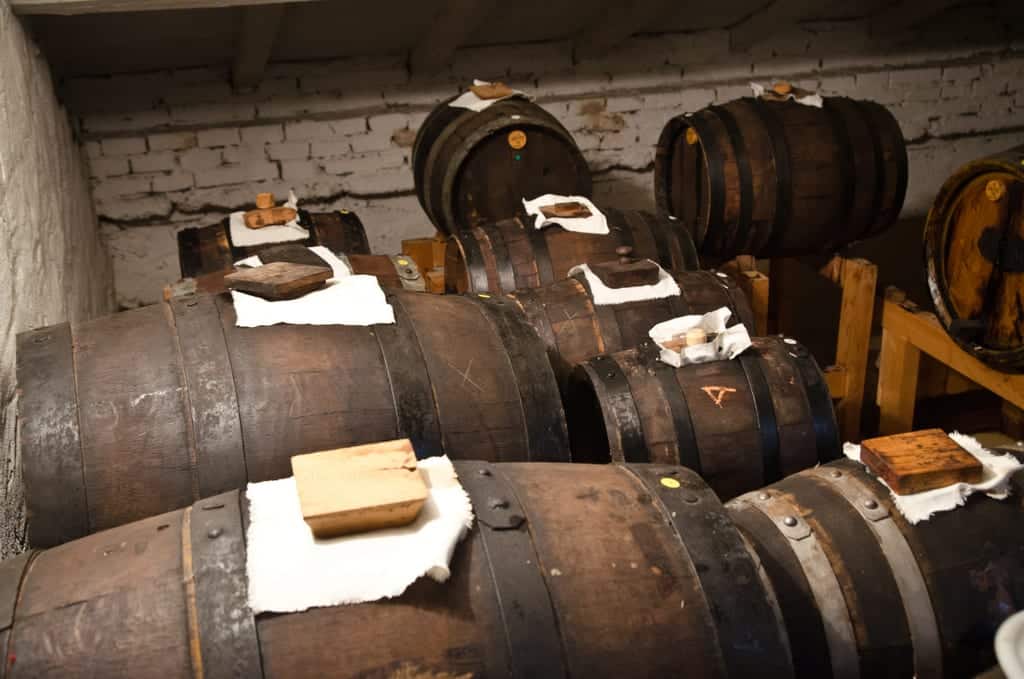
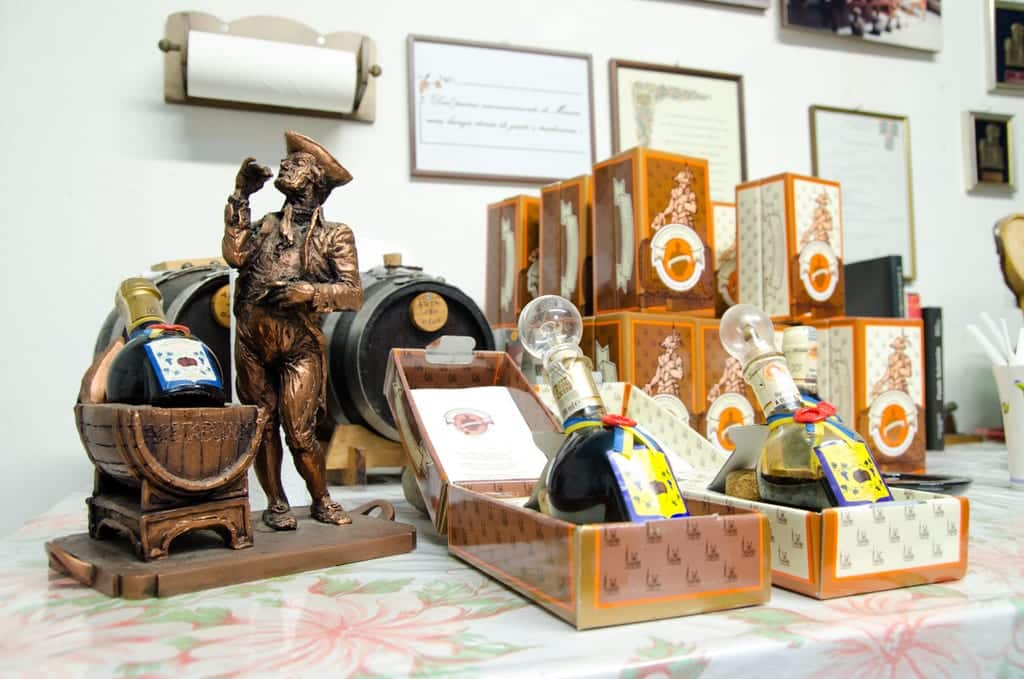
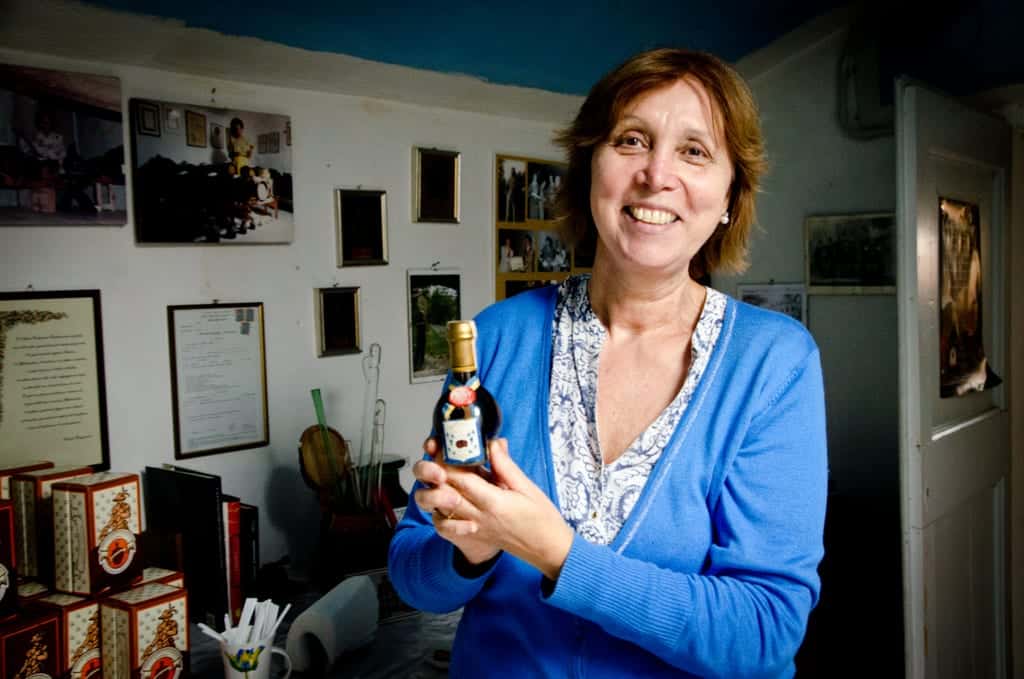
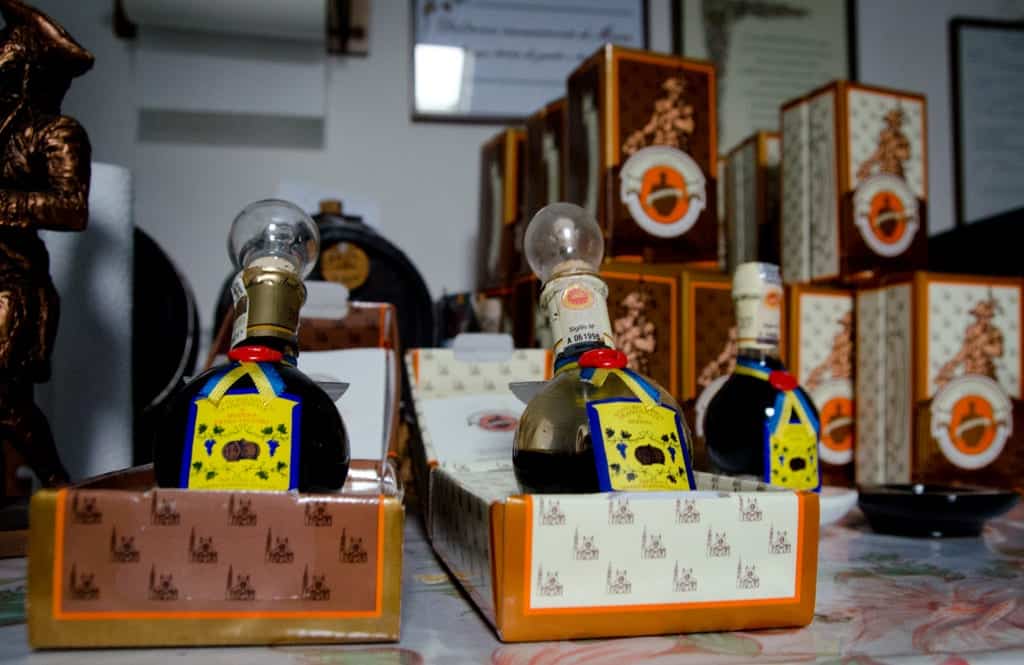
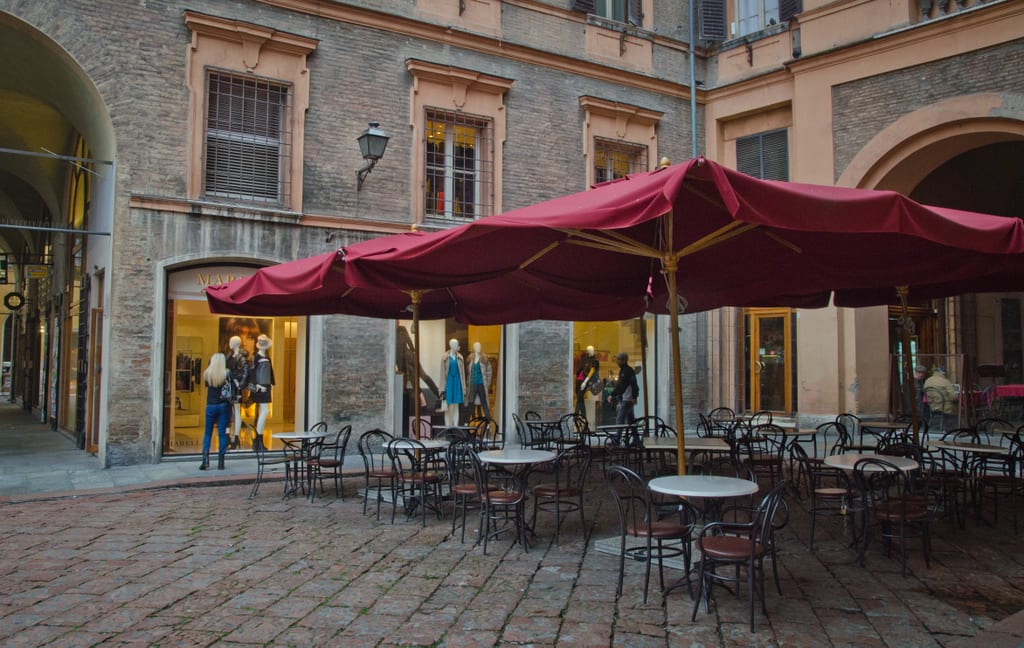
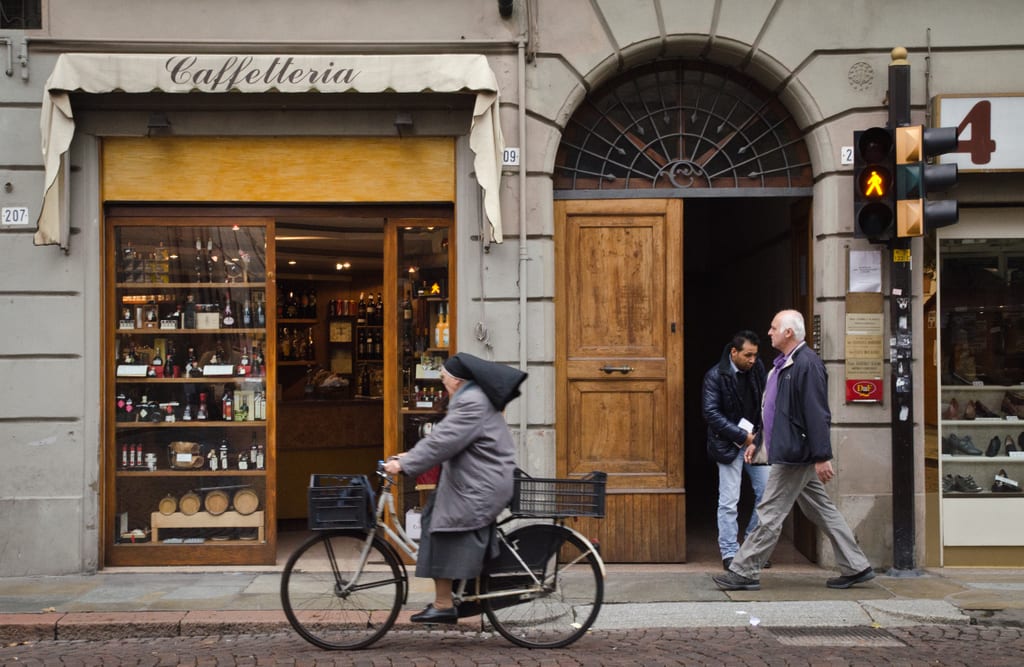
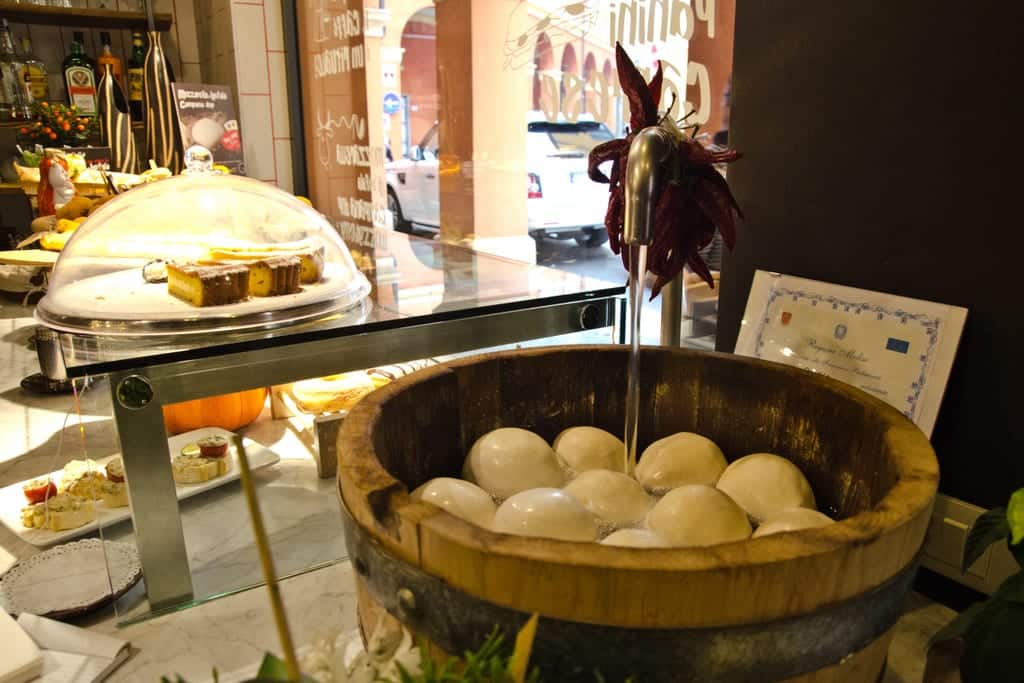
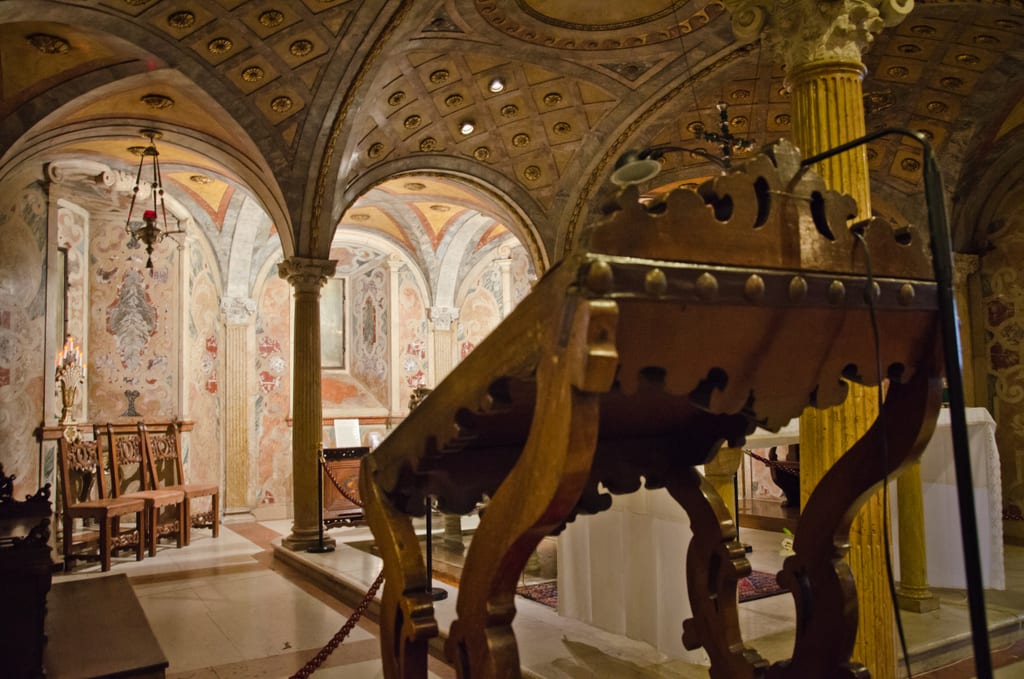
that would be a hard decision to make. I’m from a very small town in Ohio. Lots of kids from my school stayed home to farm- I don’t think I could’ve done that!
Good question… I think it comes back to the age-old question: is wanderlust sparked by nature or nurture?
My dad was a vagabond in his 20’s, and I’ve always thought it was hearing his stories all my life that planted the seed in me to seek adventure. My grandma always had a thirst for adventure, as well — she became a travel agent just to travel.
But WHAT IF there had been that small, family-run business, and that had been the focus and we’d never heard stories of our parents traveling?
Maybe we did have a family run business at some point generations ago…but it wasn’t continued because of this streak of independence in our blood and the desire to blaze our own trail.
Hmmm.
There’s merit in both, I think.
That’s a good point, Laryssa. I come from two very different parents — one quite wanderlusty and one quite not.
That definitely makes you think, doesn’t it? If you turned down the family business and let it die out, how terrible and selfish would you feel??
That being said, this was really interesting to learn about!
I definitely feel the same way as you do, and I’m from just the next town over in Lynnfield. I had no idea that you were from Reading. Although I’m currently still in Massachusetts I am focusing on saving money to travel! Thanks for all the inspiration!
Anytime! 🙂 Yes, I don’t bring up Reading specifically very often. Though they do have an awesome cougah bah (Venetian Moon).
What a tough decision it would be knowing that your family production of such fine quality and traditional creation would depend on whether you want to stay rooted or leave to create a different life following your dreams and aspirations. Actually, there is an Italian movie about this type of situation “Mine Viganti” (Loose Cannons) about two brothers who come from a family that operate a pasta making company in a small village and want to leave the family business to pursue their own/different happiness, maybe you’ve seen it?
I’ve never heard of it! Will see if it’s on Netflix. 🙂
I’ll be dreaming about making those deviled eggs tonight. Yum! Great post, I’ll be back for more 🙂
How lovely that you got to see this up close and in person!! I actually love real balsamico on pure vanilla gelato…sounds weird but it’s AMAZING!
Ooh, yes, that’s lovely. I love it on squacquerone gelato (that’s a cheese from Romagna!).
That is tough. I don’t want a nomadic life personally, but I would be open to moving to another city/country. That said we haven’t found anywhere that we would be willing to uproot for, and yes ,part of that is friends and family!
Balsamic vinegar was one of the staples of our daily life during our time in Italy. Divine. I just got myself a bottle of aged BV that’s come from Modena, so let’s hope it’s amazing!
When I go home, I always want some local maple syrup!
This is why I get annoyed when people oversell the ease or efficiency of “living the dream” of location independence or entrepreneurship in general. If you’re able to make enough money to travel in Laos indefinitely, well then you’re never going home. If you’re making enough to have a home base and travel several months per year, then you’re burning through money while you’re gone, or dealing with tenants taking over. “OMG just go live your dreams!” is far more of a feel-good statement than a useful one. Particularly if you have a cat.
I think traditions like these are going to survive, but in far lower numbers than before. On the one hand, that’s pretty lame, but on the other hand, it’ll simply increase the demand and rarity of the product, and people might end up seeking it out often enough that it cancels out its lower sales, and it might be okay. But some will simply disappear. I saw an Anthony Bourdain episode about a guy in China who handcrafted all his noodles, and that’s simply going to be a thing of the past. Kinda sad, but oh well.
Well, if you can only afford to live in Laos, you won’t have to work in an office, but you still won’t be location-independent. Far from it. That’s something a lot of people need to remember. I’ve never been quite that dire financially, and I’m looking forward to living in London and continuing to travel starting in June.
Great post Kate! I had no idea that there was more to balsamic vinegar. More than the vinegar though I was especially intrigued by your question. I am a young adult with some travel lust that I haven’t had much chance to exercise mostly because I don’t want to be too far away from those who love me for too long. I guess that means we’re approaching this question from opposite viewpoints.
Still, I have come to appreciate the happiness that can be gleaned from one’s work if one chooses to do something they love. That might mean they won’t make a lot (like me). Or it might mean that they have to move away from their families and let a family tradition die. I think what is most important is that they preserve their family ties through other means. In the example you gave, traditional balsamic vinegar is delicious and special, but I’ll bet Franca values her relationships with her children and their happiness more than she does her trade. So wherever you have to go to find happiness and satisfaction, if you keep your family ties strong I think you’re preserving family tradition.
Thanks again for your thoughts! I really enjoyed reading.
Would I stay on in the family business? Hmm. Well Kate, my family is a family of boys. My mother was the only daughter in her family. And was she dutiful? Nope! She globetrotted like no-one’s business and got into lots if trouble for it. I myself, am the only daughter too. All my three brothers live in England. I happily live in Germany. I even used to live in Slovakia and the Czech Republic….so No!
Having said that, I am a traditional woman at heart. I love my family and my country, I’ll just be flying the flag from Berlin and when my husband and I retire, if we don’t live in Hong Kong, we’ll be living in Italy!
Having a multi-generation family business would be lovely, but being tied to a specific location would indeed be tough. I’ll be in that area next year, and am really looking forward to visiting places like this and tasting “the real thing” for the first time in many years!
That would be such a debacle to be in! I guess my family is kind of in that position with our family wheat farm. Neither my sister or I want anything to do with it, both content with satisfying our wanderlust, and my brother is still unsure if it’s what he wants. I suppose if he chooses something else, we’ll sell the family farm and all of our childhood memories with it. I would mourn the loss terribly. I can’t even imagine what it would be like to be in the shoes of Franca’s children!
Wonderful description of the balsamico tradition. I was in the Emilia-Romagna region recently and now feel like a bit of a balsamic vinegar snob (which I’m completely fine with). I never explored the town of Modena itself, but I hope to next time because I long for my own photo of a nun on a bike!
I don’t know why this post doesn’t have more comments, because this was seriously one of my favorite pieces you’ve written, yet. You put such an important question forward, what would you do?
I think that’s a problem a lot of the world is facing, these days, as more and more young people migrate and want to make their own space and blaze their own trail. But at the same time, two people’s paths are never the same (even when they are at first glance) and it wouldn’t be such a bad thing to take over Mom or Dad’s business, for me at least. It’s not like you’re resigning yourself to BE your parents! Haha.
Anyways, I hope to see more posts like this. Posts that make you think and reexamine what’s important to you, because that’s really what changes people while they travel.
Thank you so much, Sally!
Beautiful images!
Real balsamic vinegar I’ve yet to try… 🙂
We actually have some balsamic vinegar from Modena in the cupboard here at my stepdad’s house! He’s really big on it, and when we ran out, he was quite perturbed when he had to buy what he deemed an inferior product, as the deli we get it from didn’t have any in stock (although we have some more now).
As for the family business thing…well, my dad is a farmer, and my family have been farming for generations. In 9 years, when he’s 65, my dad will have to give up the farm that my little brother and I grew up on. However, neither of us have any interest in running the farm, so that part of our family heritage will dissipate. That said, my dad realised a long time ago that neither of us would take over the farm, and farming is hard, thankless work. I think he’s actually kind of happy that neither of us will become farmers. Anyway, I realise this situation is different – dairy farming isn’t ‘unique’, and there shall be many other dairy farmers in the future – but, the last section of the post really made me think.
Wow. I had no idea, Tom. And while I don’t know much about farming, I know that dairy farming is a year-round, constant thing because it involves animals. That’s got to be tough.
It’s totally the same principal, though. You have to make your own way. I’m glad your dad realized that and as made his peace.